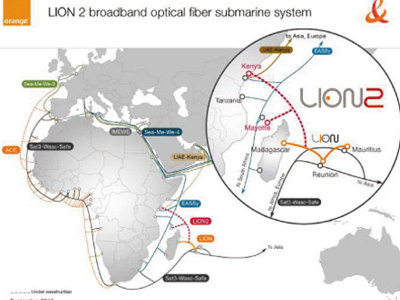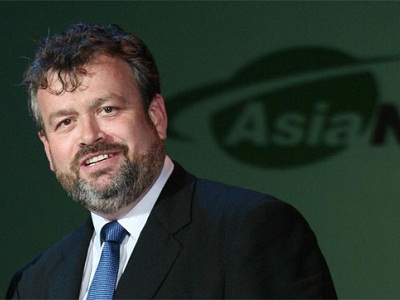The Lower Indian Ocean Network (LION2), Kenya’s fourth submarine cable, will become fully operational in April this year, the local telecommunications ministry revealed on Thursday.

The LION2 cable is a 3000 km line extending from Nyali, via the island of Mayotte, located in the northern Mozambique Channel from Mauritius and is set to significantly boost the nation’s bandwidth. Kenya already enjoys connectivity through The East African Marine System (TEAMS), the Eastern Africa Submarine Cable System (EASSy) and SEACOM.
Orange Kenya, involved with laying cables via its parent company, France Telecom, confirmed the schedule, adding that the cable arrived in Mombasa in December last year and is awaiting connection. Work continues to finish the cable’s connection at the Mombasa landing station, the company said.
Angela Ng’ang’a-Mumo, Orange Kenya’s Chief Corporate Communications Officer, told reporters that progress on LION 2 “is on target”. Orange said the construction of the 1.28 Tbps cable “is expected to cost approximately KES 6.2 billion.”
According to reports, the cable is part of a bigger project by France Telecom and 12 members of the Lower Indian Ocean Network to build a submarine cable linking Madagascar to the rest of the world via Reunion Island and Mauritius.
Samuel Poghisio, Kenyan Information Minister, said he was confident that “once it is switched on, LION2 will intensify competition in the industry and help further lower Internet connectivity charges”.
Joseph Mayton






































